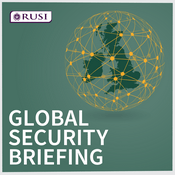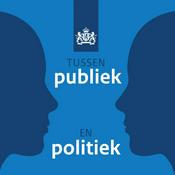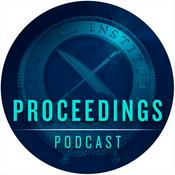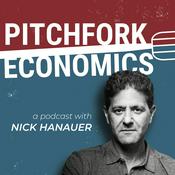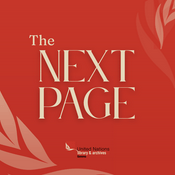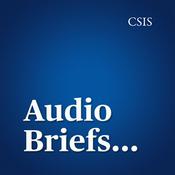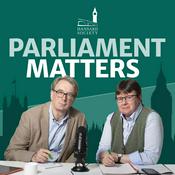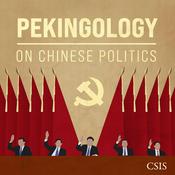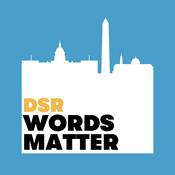2845 afleveringen
- From February 12, 2025: Jack Goldsmith, the Learned Hand Professor at Harvard Law School and co-founder of Lawfare, joins Alan Rozenshtein, Associate Professor of Law at the University of Minnesota and Senior Editor at Lawfare, to talk about his recent Lawfare article discussing last year's Supreme Court decision in Trump v. United States and its implications for executive power. They discuss how the ruling extends beyond presidential immunity, the broader shift toward a maximalist theory of executive authority, and what this means for the future of American democracy.
To receive ad-free podcasts, become a Lawfare Material Supporter at www.patreon.com/lawfare. You can also support Lawfare by making a one-time donation at https://givebutter.com/lawfare-institute.
Support this show http://supporter.acast.com/lawfare.
Hosted on Acast. See acast.com/privacy for more information. - From February 7, 2025: On today’s podcast, Lawfare Associate Editor for Communications Anna Hickey spoke to Nayna Gupta, Director of Policy at the American Immigration Council, about the Laken Riley Act, the first piece of legislation signed by President Trump in his second term, its start as a messaging bill in the last Congress, and its impact on the immigration detention system.
To receive ad-free podcasts, become a Lawfare Material Supporter at www.patreon.com/lawfare. You can also support Lawfare by making a one-time donation at https://givebutter.com/lawfare-institute.
Support this show http://supporter.acast.com/lawfare.
Hosted on Acast. See acast.com/privacy for more information. Lawfare Daily: Lessons for Civilian Harm Mitigation in Urban Warfare, from Gaza and Beyond
13-2-2026 | 55 Min.For today's podcast, we're bringing you the audio for a panel discussion that Senior Editor Scott R. Anderson hosted this past November, at a conference on Precision Lethality and Civilian Harm Mitigation, hosted by the Center for Ethics and the Rule of Law (CERL) at the University of Pennsylvania.
Joining him on the panel were Professor Claire Finkelstein, CERL's founder and director; Christopher Maier, a former Assistant Secretary of Defense for Special Operations and Low Intensity Conflict in the Biden administration; Dr. Larry Lewis, a principal research scientist at CNA and expert in civilian harm mitigation; and Professor Geoffrey Corn of Texas Tech University School of Law, an expert in the law of armed conflict with more than two decades of experience as an Army Judge Advocate General.
Together, the panelists discussed the challenges of civilian harm mitigation in urban warfare environments, what mistakes were made in Gaza and other contexts, how civilian harm mitigation intersects with media coverage and legitimacy concerns, and what key lessons policymakers and warfighters should carry into the next such conflict.
You can view articles and podcasts published in Lawfare that grew out of a number of workshops and sessions from the conference here.
To receive ad-free podcasts, become a Lawfare Material Supporter at www.patreon.com/lawfare. You can also support Lawfare by making a one-time donation at https://givebutter.com/lawfare-institute.
Support this show http://supporter.acast.com/lawfare.
Hosted on Acast. See acast.com/privacy for more information.- This week, Scott sat down with Editor in Chief Benjamin Wittes, who recently returned from Ukraine, and Lawfare’s Ukraine Fellow Anastasiia Lapatina, to go through the latest developments in that country, including:
“Cold War.” Russia’s ongoing winter campaign against Ukraine’s energy infrastructure has created a humanitarian crisis in many parts of the country. In Kyiv, at least one major power plant has been completely destroyed, and many more energy sites have been damaged. Numerous other parts of the country are without power and heating during a season when temperatures regularly dip below zero degrees Fahrenheit. What do these attacks show about the dynamics of the conflict? And what can be done to curb their effects?
“Stuck in the Sand.” U.S.-backed negotiations between Russia and Ukraine—which continued in Abu Dhabi this past week—remain at an impasse, without tangible progress other than a prisoner of war exchange that led to the release of 157 Ukrainians from Russian captivity. Russia continues to demand that Ukraine surrender a large swath of territory in its eastern Donbas region, which Kyiv says is a red line. Meanwhile, President Zelensky has suggested that the United States is pushing the sides to end the war by summer 2026 — perhaps because of the U.S. midterm elections set to take place shortly thereafter. What is the state of the negotiations at this point? Is this a reasonable expectation by the administration? Or are there any areas for potential agreement in the short or medium term?
“(P)eye in the Sky?”: The war in Ukraine is arguably the first to be fought in substantial part through drones. Not only has the conflict helped showcase the capabilities of drones, but it’s spurred rapid development in the technology behind them—and methods that might be used to defeat them. What did Ben learn about these technologies on his trip? And what can it tell us about the future of warfare?
In object lessons, Ben departs from his signature dog shirts to shirts of a more subversive nature. Nastya pleads to the power of your inner light in helping the families of Kyiv who are suffering through the energy crisis. And Scott encourages you to keep reading and caring about the War in Ukraine.
To receive ad-free podcasts, become a Lawfare Material Supporter at www.patreon.com/lawfare. You can also support Lawfare by making a one-time donation at https://givebutter.com/lawfare-institute.
Support this show http://supporter.acast.com/lawfare.
Hosted on Acast. See acast.com/privacy for more information. Lawfare Daily: Why AI Won't Revolutionize Law (At Least Not Yet), with Arvind Narayanan and Justin Curl
12-2-2026 | 44 Min.Alan Rozenshtein, research director at Lawfare, speaks with Justin Curl, a third-year J.D. candidate at Harvard Law School, and Arvind Narayanan, professor of computer science at Princeton University and director of the Center for Information Technology Policy, about their new Lawfare research report, “AI Won't Automatically Make Legal Services Cheaper,” co-authored with Princeton Ph.D. candidate Sayash Kapoor.
The report argues that despite AI's impressive capabilities, structural features of the legal profession will prevent the technology from delivering dramatic cost savings anytime soon. The conversation covered the "AI as normal technology" framework and why technological diffusion takes longer than capability gains suggest; why legal services are expensive due to their nature as credence goods, adversarial dynamics, and professional regulations; three bottlenecks preventing AI from reducing legal costs, including unauthorized practice of law rules, arms-race dynamics in litigation, and the need for human oversight; proposed reforms such as regulatory sandboxes and regulatory markets; and the normative case for keeping human decision-makers in the judicial system.
To receive ad-free podcasts, become a Lawfare Material Supporter at www.patreon.com/lawfare. You can also support Lawfare by making a one-time donation at https://givebutter.com/lawfare-institute.
Support this show http://supporter.acast.com/lawfare.
Hosted on Acast. See acast.com/privacy for more information.
Meer Overheid podcasts
Trending Overheid -podcasts
Over The Lawfare Podcast
The Lawfare Podcast features discussions with experts, policymakers, and opinion leaders at the nexus of national security, law, and policy. On issues from foreign policy, homeland security, intelligence, and cybersecurity to governance and law, we have doubled down on seriousness at a time when others are running away from it. Visit us at www.lawfaremedia.org.Support this show http://supporter.acast.com/lawfare. Hosted on Acast. See acast.com/privacy for more information.
Podcast websiteLuister naar The Lawfare Podcast, Klapmok met Thee en vele andere podcasts van over de hele wereld met de radio.net-app

Ontvang de gratis radio.net app
- Zenders en podcasts om te bookmarken
- Streamen via Wi-Fi of Bluetooth
- Ondersteunt Carplay & Android Auto
- Veel andere app-functies
Ontvang de gratis radio.net app
- Zenders en podcasts om te bookmarken
- Streamen via Wi-Fi of Bluetooth
- Ondersteunt Carplay & Android Auto
- Veel andere app-functies


The Lawfare Podcast
Scan de code,
download de app,
luisteren.
download de app,
luisteren.


